Gia Lam District Tax Team officers guide households and business individuals on registering and using electronic invoices generated from cash registers.
More than 22,300 businesses in Hanoi registered to use
According to Decree No. 70/2025/ND-CP amending and supplementing a number of articles of Decree No. 123/2020/ND-CP of the Government on invoices and documents, effective from June 1, 2025, households and individuals doing business with an annual revenue of 1 billion VND or more must use electronic invoices generated from connected cash registers and transfer data to tax authorities, instead of paying lump-sum tax. In addition, households and individuals doing business selling goods and providing services; food and beverage businesses, restaurants, hotels, passenger transport, direct support services for road transport, art services, entertainment, film screenings, and other personal services also apply electronic invoices.
After more than 10 days of implementing the new regulation, according to statistics from the Tax Department of Region I (managing the area of Hanoi city and Hoa Binh province), 22,721 enterprises and business households have registered to use electronic invoices generated from cash registers, reaching 148% of the assigned target. Of which, in Hanoi, there are 22,307 enterprises and business households (14,809 enterprises, 7,498 business households), reaching 147% of the target.
Regarding households and individuals doing business, the survey shows that the issuance of electronic invoices is basically smooth. Some businesses said that the initial cost of implementing electronic invoices is about 3-8 million VND depending on the type, including equipment, software, etc. According to a grocery store owner in Thanh Xuan Bac ward, Thanh Xuan district, applying electronic invoices generated from cash registers is not too complicated, on the contrary, it is convenient for businesses to track revenue and control costs. Meanwhile, Mr. Nguyen Van Duong, a restaurant owner in Xuan Dinh ward, Bac Tu Liem district, said: "When applying electronic invoices, the restaurant must add accounting software, equipment and connect data as required. Initially, the implementation was quite smooth, revenue or costs were better managed than recorded in books."
However, there are also many business households, because this is the first time they have access to electronic invoices generated from cash registers, so they are still confused. Some households are cautious because they are afraid that mistakes can be punished or that if their revenue is different from before, the tax authorities can come in to check and punish them. In some cases, there are even some isolated cases where they hang signs saying "cash only" or ask customers to write incorrect payment transfer content, such as "paying back loan", "coffee money"... to "avoid" taxes. Some places require additional payment if payment is made by bank transfer.
Tax authority representatives said that in cases of tax "avoidance" by not receiving transfers, having accounts that are not in the owner's name..., data can still be compared with banks and shipping units and monitoring measures can be taken.
Moving towards abolishing lump-sum tax
Previously, the Tax Department of Region I had proactively propagated, inspected, and reviewed business households and individuals in the area. The highlight was the campaign to support business households in creating electronic invoices from cash registers. During the implementation process, the Tax Department of Region I continued to grasp difficulties and obstacles to provide support.
According to the tax authority, access to technology for traditional business households is still limited, so errors in registration and errors in using digital signatures still occur... With technical difficulties, the Tax Department of Region I coordinates with solution providers to increase support for business households and individuals, especially for elderly business owners with limited access to technology. In cases arising related to regulations, mechanisms and policies, the tax authority reports and advises superiors to complete and apply timely support solutions.
According to experts, the application of electronic invoices generated from cash registers for households and individuals with revenue of 1 billion VND/year or more is very correct, because in recent times, many large business households only pay lump-sum taxes like small households. This is an inequality in tax obligations. Implementing the above regulation is a preparation step for larger business households to gradually get used to new management methods, transparent revenue like enterprises. This is also a "push" in the process of digitalizing the economy, building a more transparent and effective tax management system, moving towards a more modern and sustainable economy.
For now, households with revenue of over 1 billion VND/year must use electronic invoices generated from cash registers connected to tax authorities. Households with revenue below that level are not required to use them yet, but they also need to proactively switch, because from January 1, 2026, the lump-sum tax method will be abolished, instead, business households are required to pay taxes according to the method of declaring actual revenue. This is an inevitable trend, helping to increase transparency, while reducing budget losses and ensuring fairness in business.
Deputy Director of the Tax Department (Ministry of Finance) Mai Son:
Strengthening propaganda, guidance and support
The Ministry of Finance has directed the Tax Department to develop an easy-to-use, user-friendly electronic tax software application. In addition, the Tax Department has asked solution providers to propose ideas and introduce solutions for taxpayers to choose from.
Regarding the conversion of business households from the lump-sum tax method to the tax declaration method from January 1, 2026, local tax authorities are stepping up propaganda and guidance so that business households clearly understand the benefits of using electronic invoices and self-declaring taxes, as well as specific implementation steps. Tax authorities also proactively review and remind households that are required to apply electronic invoices from cash registers to register and install the system. Tax authorities coordinate with electronic invoice service providers to have policies to support equipment and service costs for business households in the initial stage, such as supporting cash registers, invoice printers, reducing connection service fees, etc.
Dr. Nguyen Thi Cam Giang, Faculty of Finance, Banking Academy:
Help businesses effectively control revenue
The implementation of electronic invoices generated from cash registers for business households with revenue of 1 billion VND/year or more marks an important step in modernizing tax management, while promoting digital transformation in the retail and service sectors. The form of electronic invoices allows for flexible and quick invoice creation with data transmitted directly and in real time to tax authorities, thereby increasing transparency and limiting fraudulent revenue declarations.
In addition, electronic invoices contribute to improving professionalism in financial management, helping business households effectively control revenue and costs and simplify storage and invoice lookup. Synchronizing electronic invoices also contributes to building a fair business environment, facilitating the determination of tax obligations. Successful implementation of this model also contributes to bringing business households deeper into the national digital transformation process.
General Director of Misa Joint Stock Company Le Hong Quang:
Building a culture of tax compliance
Applying electronic invoices not only helps with tax declaration but also helps manage the store more effectively. Business owners can know the number of customers, peak times, and favorite products to have appropriate business orientation. Moreover, applying technological solutions to issue electronic invoices helps business households and individuals to be proactive in transactions with customers, expand business opportunities and increase prestige and professionalism, because when being able to provide complete and transparent invoices, business households will easily approach large enterprises and organizations with more stringent requirements in accounting and tax declaration. In addition, business households and individuals can increase their access to bank capital.
This is not only a technical solution but also a long-term strategy, aiming to build a culture of compliance with tax laws, contributing to the development of a transparent and professional economy. Compliance with regulations on invoices and documents is an important step in the digital transformation process, promoting the development of the private economy.
Huong Thanh take note
Source: https://hanoimoi.vn/khoi-tao-hoa-don-dien-tu-tu-may-tinh-tien-ho-kinh-doanh-lam-quen-phuong-thuc-quan-ly-moi-705683.html


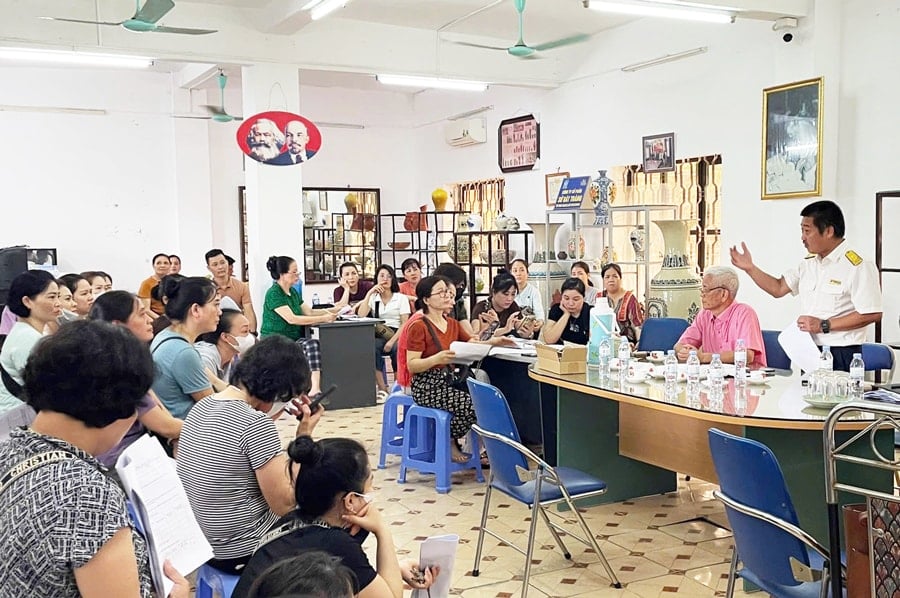













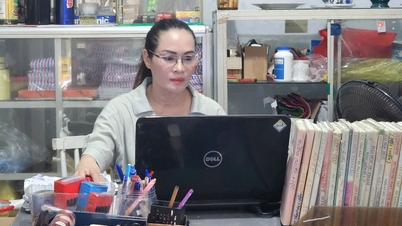

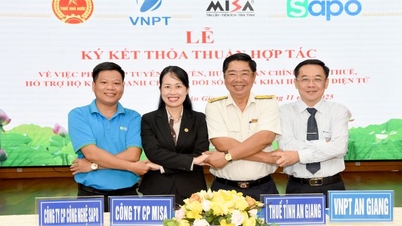

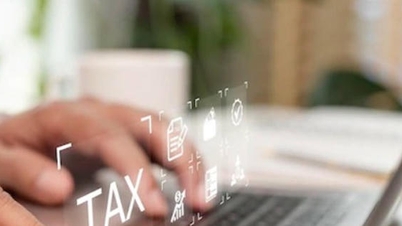








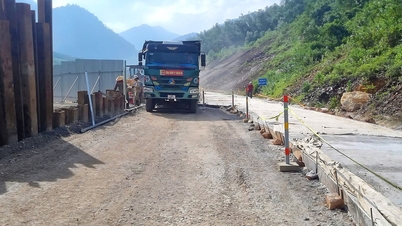







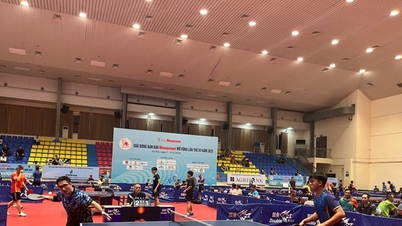



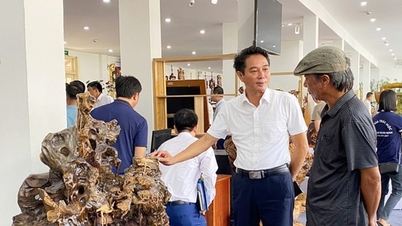











![[Video] Hue Monuments reopen to welcome visitors](https://vphoto.vietnam.vn/thumb/402x226/vietnam/resource/IMAGE/2025/11/05/1762301089171_dung01-05-43-09still013-jpg.webp)






















































![Dong Nai OCOP transition: [Part 2] Opening new distribution channel](https://vphoto.vietnam.vn/thumb/402x226/vietnam/resource/IMAGE/2025/11/09/1762655780766_4613-anh-1_20240803100041-nongnghiep-154608.jpeg)













Comment (0)